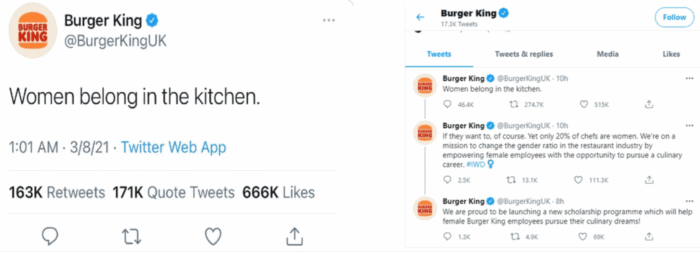PayPal kicks off fintech earnings as investors fear impact of Trump tariffs on consumer spending
PayPal reports earnings on Tuesday, followed by Block on Thursday and Affirm next week.

FILE PHOTO: A smartphone with the PayPal logo is placed on a laptop in this illustration taken on July 14, 2021.
Dado Ruvic | Reuters
PayPal, Block and Affirm are all closely tied to the health of the consumer, which has investors on edge headed into their earnings reports.
Markets broadly have been jittery to start the year due largely to concerns about President Donald Trump's sweeping tariffs and the prospect of higher import costs leading to rising unemployment and reduced consumer spending.
Specific to e-commerce, there's the end of de minimis trade exemptions for Chinese imports, effective May 2. That change, aimed at discount shopping apps like Temu and Shein, threatens tens of billions of dollars in low-cost cross-border e-commerce volume.
"Tariff implications and macro have added another wrinkle to '25," Wells Fargo analysts wrote in a note on April 16. The bank said PayPal is particularly exposed to tariff-related volatility and macro uncertainty, given that 90% of its revenue comes from consumer-driven transactions.
PayPal is the first in the group to report earnings on Tuesday. Block, the parent of Square, follows on Thursday. Affirm is scheduled to report results next Thursday. Their stock prices have been hit harder this year than the broader market. PayPal is down 23%, Block has fallen 32% and Affirm has dropped 19%, while the tech-heavy Nasdaq is down 10%.
The stocks rebounded last week as Wall Street showed some level of optimism that the Trump administration will make progress on trade agreements and that tariffs won't be as extreme as earlier proposals suggested.
Read more about tech and crypto from CNBC Pro
Trump signed an executive order in early April imposing tariffs on more than 180 countries and territories. After markets immediately plunged, the president soon announced a 90-day pause on most tariffs, though levies on imports from China remain, and are as high as 145%. The universal tariff rate on goods imported into the U.S. from most countries is 10%.
The fintech reports land during earnings season for megcap tech, with Meta, Microsoft, Amazon and Apple all announcing results this week. Tesla and Alphabet both reported last week and talked about the potential impact of policy changes on their earnings calls.
On Alphabet's earnings call on Thursday, Google Chief Business Officer Philipp Schindler said the end of the de minimis trade loophole will "cause a slight headwind to our ads business in 2025," primarily from retailers in the Asia-Pacific region.
While Google is "not immune to the macro environment," Schindler said, it has "a lot of experience managing through uncertain times."
E-commerce challenges
With mixed messages coming from the administration, companies are reckoning with uncertainty and have little ability to provide accurate forecasts for the current quarter and remainder of the year. The volatility reached such heights in early April that Klarna, which competes with Affirm in the buy now, pay later market, and ticket marketplace StubHub delayed their long-awaited initial public offerings shortly after filing their prospectuses with the SEC.
Barclays analysts noted in a report on April 17, that significantly higher tariffs will weigh heavily on e-commerce sales, particularly for goods previously entering the U.S. duty-free. The firm estimates that Temu and Shein represent more than 30% of affected flows, much of it tied to digital wallets, buy now, pay later providers, and card processing infrastructure.
PayPal derives the vast majority of sales from consumer transactions and 40% of revenue and gross payment volume comes from international markets, according to Wells Fargo analysts. The bank trimmed its price target on April 16, to $74 from $80, citing margin pressure as e-commerce trends soften and competition rises.
PayPal has been getting a boost from Venmo, but that segment is also threatened if consumer spending declines. Growth expectations for the quarter — specifically a 5.5% increase in branded checkout volume — may be too high, Wells Fargo said, based on available nonstore retail sales data.
Analysts surveyed by LSEG estimate that PayPal will post revenue growth of just under 2% from a year earlier to $7.85 billion, and earnings of $1.16 per share.
Jack Dorsey's Block faces pressure in multiple areas. Cash App user growth was sluggish in March, up just 1.3% from the same time last year, and Afterpay — the company's buy now, pay later offering — is tightening its underwriting to limit credit losses. Barclays flagged Block as one of the more exposed names to small business churn and low-income volatility, noting that Afterpay volumes remain tied to highly discretionary consumer spend.
Block is expected to report revenue growth of about 4% to $6.2 billion, and earnings of 87 cents per share, according to LSEG,
Affirm reported a 30% increase in monthly active users in March, but tighter credit conditions and a broader economic cooldown may crimp near-term loan volume growth. Its business counts on purchases of electronics, apparel, furniture and other consumer goods.
Affirm is projected to report revenue growth of 36% to $783 million, and a loss of 3 cents per share, according to consensus estimates from LSEG.
Barclays analysts wrote in a note on April 15, that in March and the early part of April, much of the retail market may have experienced a "pull forward" of discretionary spending as consumers rushed to make purchases ahead of the May tariff implementation, a dynamic that could distort some backward-looking results.
"This scenario would essentially kick the sentiment can down the road," the Barclays analysts wrote.
Representatives from PayPal, Block and Affirm declined to comment.
Don’t miss these insights from CNBC PRO


 Aliver
Aliver 











/cdn.vox-cdn.com/uploads/chorus_asset/file/25336775/STK051_TIKTOKBAN_CVirginia_D.jpg)

















